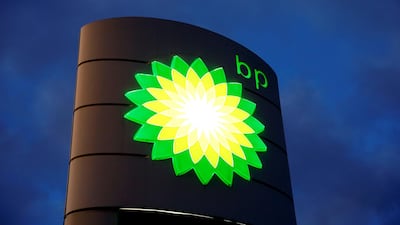Demand for oil has peaked, as countries diversify their energy mix and add a higher capacity of renewables, BP said in its annual energy outlook.
Oil and gas, which have dominated demand for energy for decades, are set to wane in significance as consumers make cleaner choices and unlikely to return to levels seen before the Covid-19 pandemic.
Oil will have to compete in an environment of shared mobility and electric vehicles, with consumers looking to increasingly redefine their mode of transport on the basis of convenience.
"Countries, cities and industries will increasingly want their decarbonised energy and mobility needs met with bespoke solutions, shifting the centre of gravity of energy markets towards consumers and away from traditional upstream producers,” said BP chief executive Bernard Looney.
Mr Looney, who replaced industry veteran Bob Dudley, has been a proponent of BP having a cleaner energy portfolio. Under his leadership, the company plans to downsize its oil and gas output by 40 per cent over the next decade and spend as much as $5 billion (Dh18.3bn) annually to build one of the world’s largest renewable power businesses.
BP is the largest oil major to undertake sizeable changes to the way a traditional Big Oil company does business. It plans to reach net zero carbon emissions across all its operations on an absolute basis by 2050. In June, BP said it is writing off $17.5bn from the value of its oil and gas business as it lowered its oil price expectations through to 2050.
In its latest energy outlook, the company assumed three transition scenarios – rapid, net-zero and business as usual.
In the rapid transition scenario, the company forecasts carbon emissions to decline 70 per cent by 2050. The net-zero scenario, which anticipates significant shifts in societal behaviour and preferences, will accelerate the decline in carbon emissions. Under this scenario, global carbon emissions from energy use could fall by more than 95 per cent.
The business-as-usual scenario expects government policy and technology to move at the same pace as before, expecting emissions to peak by the mid-2020s.

"Despite this peaking, little headway is made in terms of reducing carbon emissions from energy use, with emissions in 2050 less than 10 per cent below 2018 levels,” BP said in its report.
Primary energy demand is expected to grow 10 per cent in the first two scenarios and by 25 per cent in the business-as-usual case.
Global emissions flatlined for the first time in 2019, as economies continue to make the switch from polluting fuels to cleaner power generation, the International Energy Agency said in February.
Emissions for 2019 remained unchanged at 33 gigatonnes, as the world economy expanded by 2.9 per cent, according to the Paris-based agency.
Earlier this year, Britain said it generated more power from renewable sources in 2019 than fossil fuels for the first time since the Industrial Revolution, following the lead of other European countries such as Germany in outgrowing the need for hydrocarbons.
The UK’s carbon emissions also declined by a third during lockdown with a significant volume of clean energy added to grid in the second quarter, according to a survey by Imperial College London, commissioned by UK power generator, Drax.


